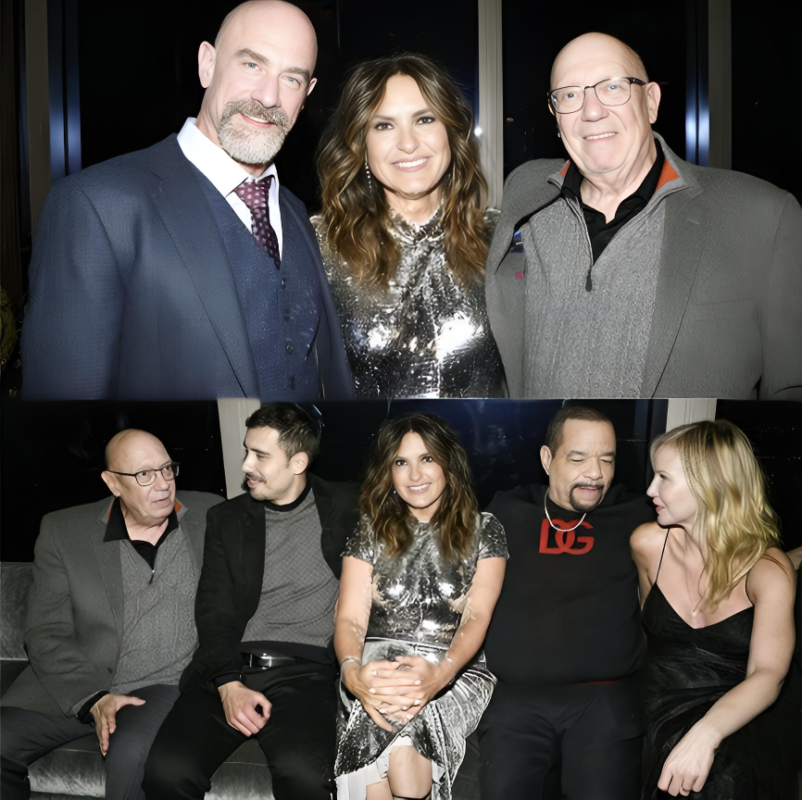
Law & Order: Special Victims Unit (SVU) has long been a powerhouse of television drama, captivating audiences with its gritty portrayal of crimes ripped from the headlines. However, in its pursuit of compelling storytelling, the show has sometimes found itself at the center of controversy, accused of distorting facts to heighten the drama. These instances, where fiction strays from reality, have sparked debates about the balance between entertainment and responsible representation.
The “Ripped from the Headlines” Approach: A Double-Edged Sword
SVU’s success is largely built on its ability to tackle real-life issues, often taking inspiration from actual events. The show’s “ripped from the headlines” approach has been a double-edged sword—while it draws attention to critical social issues, it also opens the door to criticism when the facts are stretched or altered for dramatic effect. One of the most notable examples is the episode titled “Scavenger” (Season 6, Episode 4), which mirrors the real-life case of the BTK killer. Critics argued that the show exaggerated certain aspects of the case to create a more sensational storyline, leading to accusations of exploiting tragedy for ratings.
“Intimidation Game” and the GamerGate Controversy
One of the most controversial episodes of SVU is “Intimidation Game” (Season 16, Episode 14), which was based on the GamerGate controversy, a real-life conflict involving harassment in the video game community. The episode depicted extreme violence and harassment against a female game developer, which critics claimed exaggerated the situation for dramatic purposes. Many viewers felt that the episode misrepresented the gaming community and oversimplified the complex issues at play. The backlash was significant, with accusations that the show had sensationalized the controversy, distorting facts to fit a narrative that played into stereotypes rather than offering a nuanced exploration of the issue.
“Funny Valentine” and the Chris Brown-Rihanna Parallel
Another episode that stirred controversy was “Funny Valentine” (Season 14, Episode 16), which drew clear parallels to the real-life domestic violence incident between Chris Brown and Rihanna. The episode followed the story of a pop star who is assaulted by her famous boyfriend, only to reconcile with him, much to the horror of those around her. Critics and viewers alike accused the show of distorting the facts of the case to fit a dramatic storyline, arguing that the portrayal was not only insensitive but also perpetuated harmful myths about domestic violence. The episode faced backlash for what many saw as an exploitative and inaccurate portrayal of a serious issue.
The Issue of False Confessions in “True Believers”
In the episode “True Believers” (Season 13, Episode 6), SVU tackled the complex issue of false confessions. The storyline involved a young musician who is coerced into confessing to a crime she didn’t commit. While the episode was praised for bringing attention to the issue of false confessions, it was also criticized for its dramatic liberties. Legal experts pointed out that the episode oversimplified the factors that lead to false confessions and exaggerated the ease with which they can occur. This led to concerns that viewers might be misled about the realities of the criminal justice system, with dramatic tension taking precedence over factual accuracy.
Balancing Drama and Responsibility
While SVU’s primary goal is to entertain, the show’s influence on public perception of the criminal justice system cannot be ignored. Episodes that distort facts for the sake of drama can have real-world consequences, shaping viewers’ understanding of complex issues like domestic violence, false confessions, and harassment. The challenge for SVU, and for any show that draws from real-life events, is finding the balance between engaging storytelling and responsible representation.
Conclusion: The Fine Line Between Fact and Fiction
SVU’s success lies in its ability to blend fact with fiction, creating compelling narratives that resonate with audiences. However, the show’s tendency to distort facts for dramatic effect has sparked important conversations about the role of television in shaping public perception. As viewers, it’s crucial to recognize the line between entertainment and reality, understanding that while SVU offers gripping drama, it may not always provide an accurate reflection of the complexities of the issues it portrays. In the end, the challenge for SVU is to continue telling powerful stories without sacrificing the truth in the pursuit of drama.
